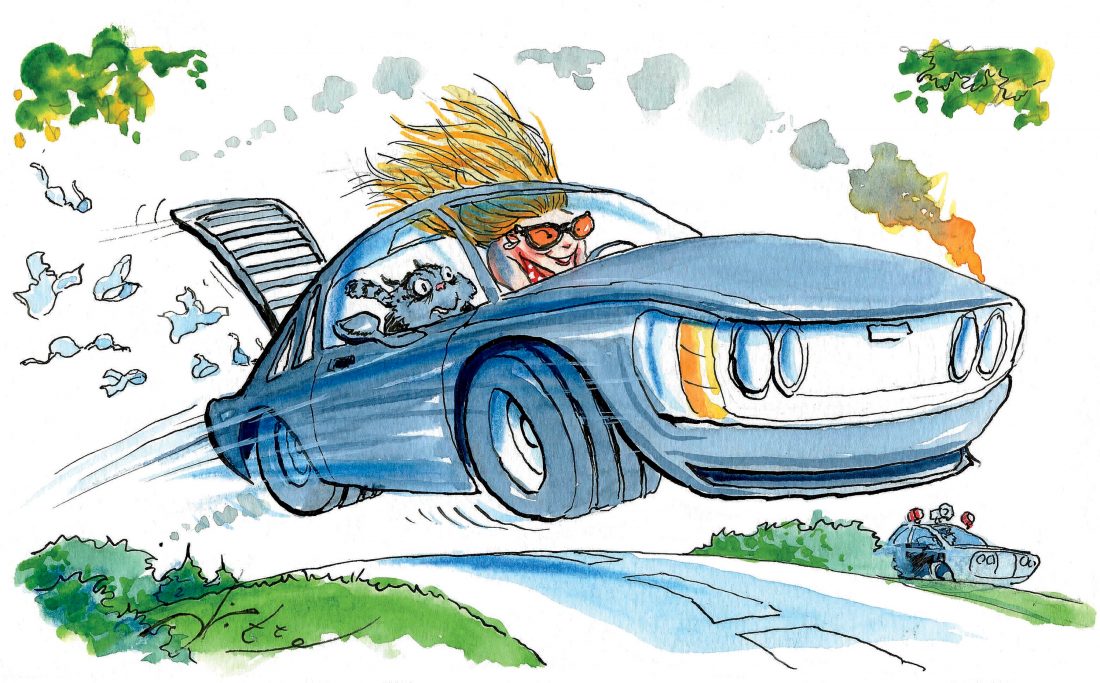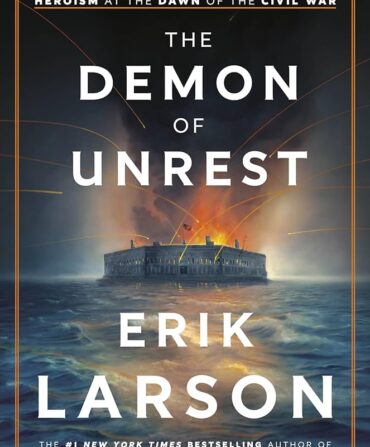My 1978 Toyota Celica was not my first car, but it was the car, the one that defined (indeed, made possible) my late teens and early twenties. Black and sporty with a sunroof and a speedometer that hit 120 in no time flat, it was a gift from my parents when I graduated from boarding school. My very nice mother drove it up from Greenville, Mississippi, to McLean, Virginia, just so my friend Courtney and I could drive it back—the first of countless badly planned and/or thoroughly ill-advised road trips that car would make (to New Orleans to see the Rolling Stones, to Maine to see a dangerous man with whom I was briefly but madly in love, to Detroit for the convention that nominated Reagan). Eight years later, I sold it in Orlando, Florida, where I worked at the newspaper. The man at the Toyota lot I brought it to first barely took a look before steering me to a scrap dealer who gave me sixty-five dollars, way more than I actually thought I’d get. My sweet Celica had been far kinder to me than I ever was to it.
Though I was seventeen when I got it, there had already been plenty of significant automobiles in my life. There was my Nashville grandfather’s Thunderbird, complete with an engraved plaque (“Made especially for G. Daniel Brooks…”) I thought was the height of cool, and my grandmother’s charcoal Cadillac Fleetwood, the enormous trunk of which was always filled with country hams and caramel cakes and dozens of gold-wrapped presents when it pulled into our driveway every other Christmas. One of my very first crushes drove a rust Gran Torino with a yellow flame down the side (I later shifted my allegiance to the owner of a rather more tasteful Torino in baby blue), while my first great love owned a very handy yellow Volkswagen Bus.
My parents’ autos were decidedly less memorable, due mainly to my father’s notorious cheapness and an ego whose robust health has never been tied to cars. My mother received one of the nicer station wagons of my childhood, a glittery blue Impala, when its previous owner, who had worked for my father, dropped dead of a heart attack. Such was its relative newness that Mama was inspired to take my cousin and me on a road trip out West, but the car’s looks were deceiving. We spent whole days touring the garages of Tyler, Texas, and Flagstaff, Arizona.
When I turned fifteen (then the driving age in Mississippi), my father bought me a navy 1967 Mustang for four hundred dollars. In my first year of ownership I’m sure I put at least fifty thousand miles on that car without ever leaving the Mississippi Delta. It had a convertible top, the requisite eight-track tape player, and a metal ashtray so deep it could (and did) hold a carton of Marlboro Red cigarette butts at a time. During my senior year of high school, Daddy sold it (with my favorite silver earrings and a bottle of contraband whiskey still in the glove compartment), and I was so mad I ceased to speak to him for a month. But then he made up for it with the brand-new Celica, such a phenomenally unlikely choice that it still baffles me.
What I did not get was any instruction on the care and feeding of an automobile. I didn’t have any idea, for example, that you were supposed to change the oil—or what that even meant. I found out seven years and well over a hundred thousand miles later when the Celica died at the drive-through window of a Winter Park, Florida, Steak ’n Shake. The man at the Shell station across the street took a long look at the engine and an even longer look at me. “Ma’am,” he said, “if this car were a child, you’d be in jail.” But then he got it running again and off I went. By that time, the floorboards were no longer level because whole layers of lichen—I swear—had grown underneath the carpet. Apparently, within my first few months of ownership, Toyota had sent out a notice informing buyers of a tiny malfunction involving the rubber seal of the trunk that I’d either missed or ignored. This meant that every time it rained, the water would run off into a sort of narrow trough that directed it to the floors of the passenger sides of the front and back seats, where it sat for so long things finally began to grow. It took six or seven years, but one day I noticed something slimy protruding from the carpet, and when I tried to pick it up I realized it was attached to a hard bed lurking beneath.
But really, the lichen was the least of it. Right off the bat, it was as though that car gave me carte blanche to behave as irresponsibly as humanly possible. The first month I had it, I left a rather raucous swimming party on the opposite side of town from home (where I was already an hour or so past curfew) and decided that my hair would dry faster through the sunroof, especially if I was going really, really fast and ignored a couple of stop signs and a light. The cop who pulled me over was unamused by my outfit (damp bathing suit) or my hair (dried straight up in a Bride of Frankenstein do) and carted me off to the jail. I dared not call my father, but he somehow got word of my incarceration and was so suffused with disgust when he arrived at the police station that the memory of his face still scares the bejesus out of me almost forty years later.
That fall I loaded the Celica with a metal footlocker, my stereo, and a box of LPs and drove myself to college at Georgetown, where I became instantly popular with my fellow students who had abided by the rule prohibiting freshmen from having cars. The road trips commenced in earnest. There was the night (after an extremely festive time of it at the Tombs or the Third Edition, I can’t remember which) Bryan Carey, son of then governor of New York Hugh Carey, and I decided it would be a great idea to hit the road right then and there for Albany to surprise his dad. When we left, our compatriots had to push us down the hill on O Street just to jump the car, the first sign that our outing might not be the best idea. Then there was the Sunday that a housemate’s buddy had gotten picked up by the state police for hitchhiking in Kentucky. Clearly, we had to rescue him, and besides, one of our group had a sheet of blotter acid, so we could combine two trips in one. I have a vague recollection that the acid trip, which I’d never tried before, was like the road trip—I mostly wished them both to be over. Far more memorable was the discovery of the just-invented Hardee’s breakfast biscuit, which might well have saved us and which remains one of the great rewards of long nights on the road.
Most of the trips involved the thousand-mile-plus trek home to the Delta from D.C., most often accompanied by my thirty-five-pound long-haired cat, Sam, acquired during my sophomore year, and my most stalwart (to this day) traveling companion, Anne Flaherty, who seemed to every parent (including my own) to be the responsible one, while in reality she was every bit as bad as I was, especially in the car maintenance department. Once, when she took the Celica to our neighborhood service station (when such a thing existed), the Iranian pumping the gas asked her if she’d like him to check the brake fluid. When Anne, busy sunning herself through the open roof, replied with a blasé “I guess,” he became enraged. “You guess? You guess? You do not guess with your life!” The guy was perhaps a tad edgy since it had only been a couple of years since the Ayatollah Khomeini had driven the shah—and him—from his home country, but he had a point. I only wish he’d told me about that oil change thing.
Anyway, we did a lot of guessing with our lives, most notably when we left for Christmas break during an especially cold December. Having spent the evening at Nathans, where Anne was employed as the record girl (she sat in a booth and spun records for the customers in the dining room while I dutifully waited for her in the bar), we got a bit of a late start, which meant that it was about 10:00 p.m. when we departed. We were seriously short on cash (I think we had seven dollars between us), but we figured we’d be okay with Anne’s father’s Amoco credit card and the three tangerines and bottle of sherry we’d scrounged for sustenance. Then, somewhere in the mountains of Virginia, we had a blowout.
Now, I had taken driver’s ed from our school’s assistant football coach the summer before I got my license, but I had no idea how to change a tire, and our situation suddenly had me feeling slighted. The thinking at the time had been that if you flirted with Coach O’Brien, he wouldn’t make you learn how, but in retrospect I realize it was because he was carrying two or three spare tires of his own around his middle and he had no more desire to get out into the punishing June heat and humidity than we did. Anne was similarly lacking in this rather crucial skill set, and there was also the problem of locating the jack and the spare in the first place. Since we’d been too under the weather to actually pack, all our clothes and shoes and undergarments had been thrown, loose, into the trunk, and we had to mound them up on the side of the very empty road. After at least an inch of snow had fallen on our belongings and us, and more than a dozen truckers had wisely chosen not to get mixed up with our madness, a lone savior stopped and changed our tire while we held his lighter (which we subsequently lost) so he could see. Soon after we crossed into Tennessee, an Amoco station shone like a beacon, and when we came out, with bulging armloads of Doritos and cigarettes and beer and Snickers, it looked as though we’d robbed the place.
Our Southern odysseys went on for years on end—even after I moved to Orlando, we took the Celica all the way down to Key West—and almost always involved at least one speeding ticket (each) per trip. We racked up so many in the tiny Delta town of Beulah (in our defense, it’s extremely hard to realize it’s a town) we ended up cutting a deal with the justice of the peace, trading pecan pies from Greenville’s Sherman’s grocery store for the tearing up of the tickets.
I thought about the late Judge Arnold the other day (actually, I think about him a lot since the lawyer who facilitated the transaction, my old friend George F. “Boo” Hollowell, Jr., once gave me a julep cup inscribed with the words “Judge W. D. Arnold Memorial Speedway” that currently holds the pens on my desk). Anyway, I was blowing through his old hometown doing my usual ninety when some part of my reptilian brain kicked in and urged me to slow down. There were no cops in sight, but I had to smile at how little my so-called adult life has evolved. For one thing, I was driving a black car with the sunroof wide open, and Bonnie Raitt, Anne’s and my preferred traveling music, was blaring from the stereo. The car is now a Caddy rather than a Celica (but it’s the first new car I’ve owned since), and Bonnie’s excellent new Dig In Deep was playing on SiriusXM rather than a cassette player. It’s no wonder that I take solace in the facts that Boo still maintains a practice in Greenville and Sherman’s, though now a restaurant, makes the same pecan pie.
Though I still spend a ton of time on Mississippi’s byways, it has been a while since Anne and I have hit the road together. Our most recent trips have required commercial air travel, including one to Madrid a few years ago when the sherry I was sipping reminded me of our escapades. We took a lighthearted look down some of our more harrowing lanes and then I actually said something like, “Yeah, but there was always one thing about us. We were smart enough not to go completely over the edge. We instinctively knew when to pull back, when not to go too far.” At this patently ridiculous statement, Anne’s right eyebrow shot up past her hairline and she gave me a look only someone who has known you so long and so deep can give. Then we laughed so hard the entire tapas bar turned to stare. We both knew that we’d been idiots, that the grace of God and dumb luck were the only reasons I’d lived long enough to say something so pompous and she’d lived long enough to hear it. That is: the grace of God, dumb luck, and the power of the mighty Celica, so mistreated yet so giving.








